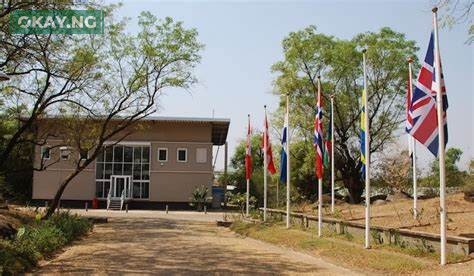Reflecting the deepening anxieties over the fragile stability of South Sudan, Norway’s foreign ministry has announced the temporary closure of its embassy in Juba. The decision, revealed on Wednesday, underscores the escalating security crisis gripping the world’s youngest nation.
“The deteriorating security situation” was cited as the primary catalyst for this diplomatic withdrawal, a phrase that carries significant weight in a region already burdened by instability. As a writer, I’ve observed that such diplomatic actions are not taken lightly; they signal a serious erosion of confidence in the host nation’s ability to ensure safety and stability.
The immediate trigger for this heightened concern is the recent surge in clashes within Upper Nile state. President Salva Kiir’s dismissal of the state governor has ignited a volatile confrontation between government troops and an ethnic militia. Kiir alleges this militia has formed an alliance with his political rival, First Vice President Riek Machar. This standoff has raised the specter of a return to the devastating civil war that plagued South Sudan following its independence in 2011.
“The Norwegian embassy’s work will be carried out from Kenya’s capital Nairobi until further notice,” stated the Norwegian foreign ministry, a pragmatic step to maintain diplomatic functions while prioritizing the safety of its personnel. This repositioning is a logistical necessity, and a message to the world. And it also highlights the vulnerability of people who live within South Sudan.
Read Also: Nigeria Nears Diplomatic Resurgence: Ambassador Vetting Underway
For South Sudanese citizens, this diplomatic retreat signals a potential escalation of violence, and the possibility of renewed suffering. After years of conflict, the prospect of another slide into chaos is a heavy burden to bear. The emotional toll of such instability is undeniable, and the implications for humanitarian aid and regional stability are significant.
The civil war, which officially ended in 2018, resulted in hundreds of thousands of deaths and displaced millions. According to the United Nations, even after the civil war, South Sudan has continued to experience localized violence, and food insecurity. [Source: United Nations Office for the Coordination of Humanitarian Affairs (OCHA)] The fear now is that the current political tensions could reignite widespread conflict, reversing any progress made.
As observers, we must recognize that diplomatic actions are often a barometer of underlying tensions. The Norwegian government’s decision is a stark reminder of the precarious peace in South Sudan. The statement that “the Juba mission would be reopened when the situation allowed it” provides a small amount of hope, but the future of the nation remains uncertain.













